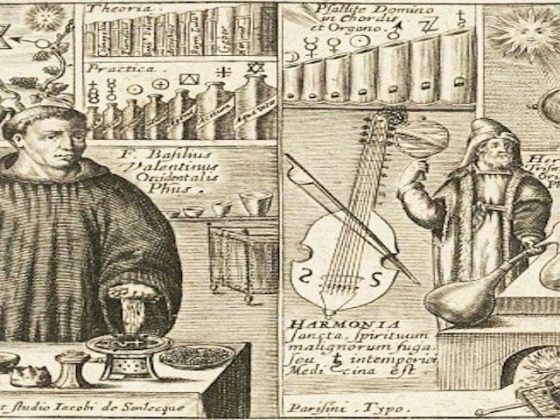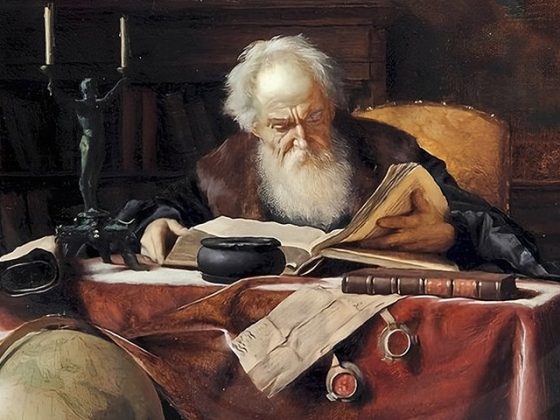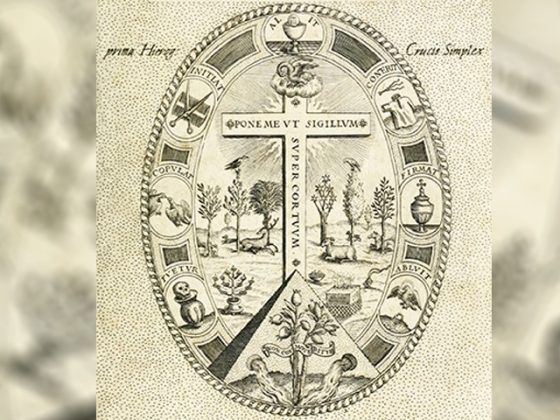Esteemed readers:
The prototype of a kalkian personality
I give you some clarifications which I have considered relevant regarding some declarations made by a pseudo-writer who, in addition, is blowing his own horn while bragging about being an atheist. In this article this individual starts by saying:
Religion is basically a bad thing that needs to be reduced to a minimum.
Eduardo Mendoza publishes The Beards of the Prophet, where he shows his fascination with the narratives of Sacred History
Eduardo Mendoza ─Barcelona, 1943─ has left London and lives again in Barcelona, at least until the virus subsides. Last week, a new edition of his essay The Beards of the Prophet ─Seix Barral─ was released for sale, a book published three years ago in the Mexican Fund of Economic Culture ─FCE,─ and in which the author reviews the themes and issues of what was his favorite subject at school, Sacred History, “which conveyed all of that to us as truths but for me it was a very powerful literary education”. Thus, the protagonists of Mendoza's new book are Adam and Eve, Noah, Jehovah, Abraham, Isaac, Solomon… He speaks about all of them in a telephone conversation with this newspaper, in a pause from writing the third and final installment of his trilogy The Three Laws of Movement.
Where does this character get the idea –which he finds very laudable– of considering religions as something BAD that needs to be reduced to a minimum? Who is speaking through his mouth? Is it perhaps the profound inner BEING of this man? Obviously not. The one who speaks through him is his own inner Beast, his individual Antichrist, even if the whole world wants to deny it.
Through Gnosticism we can come to know who is manifesting in us when we think, feel or do something; this is the virtue of Gnosis. As the Founding President of contemporary Gnosis, the V.M. Samael Aun Weor, rightly said: “All religions are pearls strung on the golden thread of divinity”. However, a kalkian personality like that of this gentleman will find that absurd because, simply, he is divorced from the Intimate, he has become an empty house. To all of you, illustrious readers, I let you know that we will provide our analysis of each response of this ignorant person by clearly differentiating his words from our comments.
Your work doesn't have many biblical echoes, does it?
In all of my novels there are moments when this component comes in, for example the saints, the patron saints of the cities, the virgin of Montserrat, the Macarena…, although they are not strictly religious elements. It is a part of human nature to believe in these mythologies… It seems a lie that people like Plato or Socrates believed those things about Zeus, Venus, those absurd characters who become swans or bulls to flirt with a peasant girl. Although they were great philosophers, they held these facts as absolutely certain, just as eminent thinkers today believe in Buddha or the Sacred History. In my case, it was the only absolutely fantastic subject we had: between mathematics and Latin, suddenly Samson and Delilah appeared! Cain and Abel! They were our superheroes.
Again, in this first response that the individual gives to the interrogating journalist, he lashes out against nothing less and nothing more than the very fathers of eternal philosophy, such as Plato and Socrates, and label these Self-Realized Masters as naive. This pseudo-writer would sure like to enjoy the capacity of awareness of all those Masters of antiquity such as Pythagoras, Plato, Socrates, Heraclitus, Solon, Anaxagoras, Tales of Miletus, etc., etc., etc. These beings obviously communicated with what we today call pagan deities, for humanity had not yet fallen into the gross materialism of our day and the sexual degeneration that has ruined the organic machine of the masses of the whole world. To this individual, dear reader, it is IMPOSSIBLE TO CAPTURE IN HIS MIND the law of metaphysical metamorphosis, which allowed those deities of the Copper Age to change their structure and appear before mortals as swans, bulls, eagles, etc., etc. In those times, the occult anatomy of humanity had not totally atrophied and, despite the fact that the “I” had already begun to carry out its conquest of the Soul of men, people could still perceive phenomena related to the fourth vertical. To top it all off, the author of this barbarity has the fixed idea that these deities only transformed themselves so as to go and abuse peasant girls… Poor man!… He understands nothing regarding sacred metamorphoses.
Seriously, were you bored in literature class?
They didn't make us read shooting novels, as is the case now. They made us learn rhetorical figures, metric, the pure mechanics of classical literature. We read fragments of Lope de Vega, Calderón, Santa Teresa de Jesús… It's okay because novels are for free time and teaching must do that…, but it was very boring, I would get average grades in literature. Instead, ah, Sacred History! It was like the craziest TV series.
Now, responding to the interviewer's question, this dreamer considers religious or sacred narratives as something typical of today's crazy stories on television; that is, unfortunately, what humankind of these times is like. But here, it is fitting to add Victor Hugo's portentous saying: “He who laughs at what he does not know is on his way to becoming an idiot”…..
You relate how it could have happened that Christianity were to not represent the human figure either…
All the museums of classical art in the world would have been wiped out entirely. It could have happened, as in Islamism, and then we wouldn't have Leonardo da Vinci. That was a narrow escape…
In this earlier response, the megalomaniac came to receive a ray of light from common sense.
You address prohibitions such as eating pork or squid.
Believing Jews cannot eat pork or seafood that do not have scales, which affects all shellfish, squid, octopuses… and why does God forbid eating squid? It's a very serious issue: what does this reflect about human nature? Why do we impose limitations and punishments upon ourselves? They say it has a sanitary origin, to avoid eating contaminated food… No, no, it's simply to distinguish ourselves from other civilizations and say: ‘We are the ones who don't eat this.' Then we justify it because a divinity appeared on a mountain, forbidding us to eat barnacles and oysters.
This megalomaniac, in his delusions of greatness, knows nothing about why limitations exist in some religions. However, it is also good to know that many sacred texts were later on adulterated by followers of such-and-such beliefs, all of which led humanity to suffer from the psychological disease of EXACERBATED FANATICISM. Ignoring our previous premise, the pseudo-writer then states that followers of certain religions impose punishments upon themselves and that deep down all they want is to differentiate themselves from others… Certainly, many of the religious fanaticisms we see today, especially in Judaism and in Islam, denote, deep down, a very profound inclination within the faithful fanatics of wanting to feel SUPERIOR TO OTHERS.
Cain and Abel makes you think of Spain…
We are a Cainite country. Look: there were only two people in the world and the first thing they do is that one kills the other. They could have been Spaniards.
Noah's ark is very topical at a time of mass extinction of species…
I always saw it as a story that is much more festive than apocalyptic, it was like a super-zoo tucked into a huge boat. Today we have turned education around and all ethical teachings are practical in nature, but before they were transmitted in a literary and mythical way. Today they tell you how to behave, how to cross the street…, but people need myths and will look for them in Tolkien, ‘Game of Thrones', dystopias… That is the spiritual food that used to be the Sacred History or the Gods of Olympus.
Again, in the previous paragraph, this kalkian character, without knowing the true kabalistic-metaphorical meaning of Noah's Ark, compares it to a zoo and considers all these Old Testament narratives as things that people need to have in their minds, because of a supposed mediocrity of the human mind, all of which leads it to support itself upon myths or unreal stories, etc., etc., etc.
Do you follow those products you cite, these contemporary series or sagas?
Yes, but with disappointment. They look like rehashes to me. They all take handfuls of ancient mythologies and make a kind of junk food with these elements: a little bit of the Norse mythology of the Nibelungs, the dwarves and giants, a little bit of the Bible, a little bit of Greek mythology, something from India… As TV entertainment, some are effective but I am left feeling that I am being taken for a ride.
You dedicate a chapter to Sodom and Gomorrah…
It's another one of the shocking things about the Bible. Suddenly, in that episode, it is decided to condemn homosexuality with great force, of which nothing had been said up until then. Suddenly, boom, and the subject doesn't reappear. Other cultures of the time see it as something natural, something that happens, neither good nor bad, simply something that exists. But in the Bible, the rays of heaven completely destroy a city in which, curiously, they were all homosexuals except for one family, which they let go. Have you ever seen a city like this?
This mentaloid adventurer knows nothing, unfortunately, about the degeneration in which people and races fall. At the center of all degeneration ─we already know this through Gnosis─ is found, precisely, FORNICATION. This pernicious habit strips the human entity of all mystical-spiritual energy, fattening more and more “I’s” on the person's spiritual continent, until he is completely divorced from the BEING.
When this happens, there is nothing strange about the solar dynasties deciding to wipe out certain human groups, as was the case of Sodom and Gomorrah, cities that already, manifestly, became infernal.
The family that was not affected by such divine punishment is a symbol, patient reader, it is the family that remained faithful to their divine commitments. The same will happen with the entire current human race, it has already failed absolutely at all levels and the extermination of it has already begun through different kinds of cataclysms, to which will be added the Third World War, pests, different kinds of viruses, unknown diseases, etc., etc., etc.
You address the power of what is oneiric, and the importance of dreams in the Bible…
Freud is a Jew with a deep biblical education and all his studies of the subconscious have a very strong basis in the Old Testament. We have inherited that conception: the occult forces, the Bible is full of witches, vampires, dreams intervene, it is a very strange book, full of symbols, which all of them later on are taken advantage of by psychoanalysis: the whale, the father and the son, the brothers…
Dear readers, although Freud was certainly a Jew, as were Karl Marx, Hegel and others, it does not mean that he was really profound in his assertions. Precisely, psychoanalysis has ceased to be useful since many years, this is how various psychiatric societies have considered it. Freud was a fanatic who tied everything regarding dreams to sexuality, which doesn't make sense.
More profound and a true scrutinizer of the human psyche was Carl Gustav Jung, who actually found the bond that links the subconscious levels of the human psyche with the most diverse religious or metaphysical traditions. Jung managed to catch a glimpse of the importance of dreams in man's life, always stating that through the latter something profound within the human being seeks to manifest itself by sending oneiric messages. That “something” is nothing less and nothing more than the BEING himself.
But in your work, dreams are not important.
They're not. I have little respect for dreams. I think they are an unnecessary nuisance. They are unpleasant, for one that is nice, there are two hundred that leave you with unease. Good thing that they were just a dream. They are usually overwhelming: I, in them, arrive late someplace, I show up somewhere dressed in a bad way or, if I have a bad digestion, I can't walk, they chase me and I can't run. What are dreams for? They're nonsense.
In this other response that we perceive in the previous paragraph, the individual, divorced from his true spiritual nature, ─namely: the BEING─, again laughs at what he does not know and lashes out at “dreams” alluding to them being, most of them, unpleasant… But what this gentleman doesn't take into account is that if his dreams are unpleasant, it's because they're provoked by his countless psychological aggregates that play a dirty trick on him all the time.
This book, which actually would be blasphemous in other times, is written out of tenderness, isn't it?
It's a tender book, yes. In The Amazing Journey of Pomponio Flato this tenderness for sacred stories was already gathered, then it was about the child Jesus, St Joseph, the Virgin… Well, I think religion is basically a bad thing, one has to try to reduce it to a minimum because it always ends with killing, extermination and violence. Now, we complain about Islamists beheading teachers for any nonsense, but how many heretics have we burned in the public square? Religion, the further away it is, the better. Instead, mythology moves me to tenderness because it is the flight of imagination.
Here, the interviewee already exposes himself as AN IRREMEDIABLE ATHEIST, therefore, he strongly states that religions are something that need to be reduced to a minimum. Religions are not to blame for the disasters that certain groups of fanatical clerics have done with them, such as those who continue to behead people in the name of Islam, or the crimes once committed by the Catholic Church in medieval times, calling everything they believed to be satanic to the bonfires in order to be burnt, by virtue of their fanaticisms and megalomania.
But, together with this irrationality, religions also contain the principles of peace and harmony…
These values are very recent, until a century and a half ago the cross and the sword were always united, Christianity was a religion of conquest. Now the official religion has remained as evangelical, of peace, harmony, charity, solidarity and love, but the original religion from which it comes is of tremendous brutality; the one who does anything is stoned, and the poor women -likened to the oxen and other properties of the man-, don’t even get me started…
Again, this mentally unbalanced individual once again asserts that religion was always rooted in brutality, hatred, sectarianism, contempt for women or animals, etc.
This pseudo-writer still does not understand that the misuse of religions has been the fault of its pastors who themselves, not having embodied the religious principles they preached, were victims of their self-deceit.
Tell us.
In biblical codes, if a husband is jealous, he takes his wife and locks her up, and then an investigation opens in court. If the jealousy was unwarranted, they “forgive” her and let her out. Only jealousy is enough to punish her, not having caught her stepping out of line. And, if there's been something, of course, she is stoned.
In these other statements the interviewee again repeats more of the same…
You say you support the ten commandments. Even the sixth one?
Yes, yes, you have to do things right, man, moderately, not I get you here and here I kill you, look what's going on with Weinstein and all of his many followers. All commandments have a justification: not to lie, not to kill, not to steal… they are things that are good, you can explain it any way you want.
In this response he gives to the media, the atheist is forced to accept the Ten Commandments because of the overwhelming logic that the latter present.
You allow yourself to offer literary criticism and praise details of the Narrator of the Bible, such as Moses stuttering.
Of course! I like Biblical films very much, they are enormously entertaining, but also a disaster because they face a serious problem: cinema is by definition realistic and cannot reflect mythology, or what is purely abstraction, unlike literature. Moses of ‘The Ten Commandments' is a kind of cowboy who saves his people from the Indians. He was actually a stuttering nut who spoke through his brother. One thinks: why such unnecessary details? It is what gives consistency to the Bible, what makes you think that it must have been true, that Moses must have existed, because if you invent a hero, why do you make him stutter?
The worldliness of the so-called “modern man” is incapable of understanding the life of the Great Initiates and for this reason he criticizes every little detail that seems strange in their lives. Certainly, Moses had stuttering problems during his life, but that did not prevent him from Self-Realizing completely, let alone did it prevent him from performing his miracles.
You occupy yourself much more with the Old than the New Testament…
The Old Testament is a mythology, with some poetic and legislative fragments. The New Testament is more of rules of conduct, it would be like self-help, what needs to be done in order to be good, but it has very little action: the Christmas season, the Passion, in the midst of it a handful of miracles, the resurrection of Lazarus and little else. There are no battles, no kings, no dynasties, no betrayals, all those things of the Old Testament. They are two totally different works that should not go together but they do, due to religious reasons, not literary reasons.
As a good intellectualoid, the interviewee responds in the previous paragraph by comparing the Old Testament to the New Testament, simply ascribing the latter the quality of a “code of good conduct”. He criticizes, the so-called writer, that both testaments are together in what we call The Bible, but it was inevitable for it to be so, because theologians of past centuries considered them as part of the Western religious tradition.
What about the Wise Men?
They hardly appear, but because of our need to turn things into magical, we made them what they are, in an operation that is not only commercial but also exalting childhood and imagination. We have assembled an entire world around two paragraphs of the Gospel.
Those of us who study Gnosis know that thenarratives about the Wise Men were the product of medieval alchemists, and in them, metaphorically, they showed the need to use the Mercury of the wise to manage to find the inner Christ child, who has to be born in the heart of the human being.
I now leave you a few sentences for reflection.
“The rage of intolerance is the craziest and most dangerous of vices, because it deceives us with the appearance of virtue.”
Souchey
“You need to be very strong or very crazy to dare to be intolerant.”
Chamfort
“Intolerance can be roughly defined as the outrage of men who have no opinions.”
G. K. Chesterton
“The very least of what we ignore is far greater than everything we know.”
Plato
“The disease of the ignorant is to ignore his own ignorance.”
A. B. Alcott
MAY ALL OF YOU RECEIVE THE BLESSED EMANATIONS OF THE OMNI-MERCIFUL FOR ALL ETERNITY.
KWEN KHAN KHU








